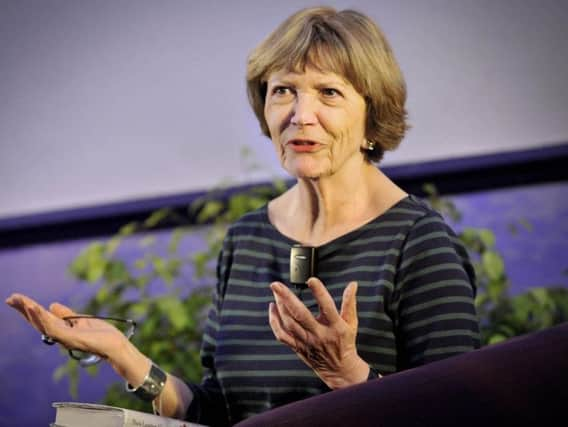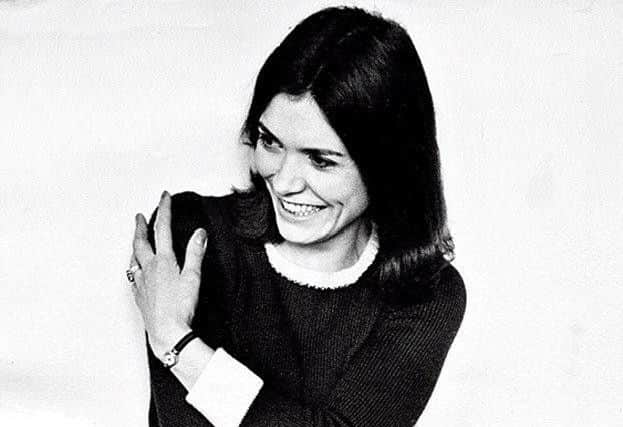Joan Bakewell says women will win after Weinstein scandal


Not only did the veteran writer and broadcaster rise to the top in the 1960s, an era when women’s rights was a subject to whisper rather than shout about, at times since then she’s seemed to lead the way.As audiences will discover when the award-winning TV journalist gives a talk on her latest book at Raworths Harrogate Literature Festival this Thursday, Joan is as much engaged with the big issues of life at the age of 84 as she ever was.Notoriously described by the press in less enlightened times as “the thinking man’s crumpet”, Joan says recent headlines about the behaviour of film mogul Harvey Weinstein and the gender pay gap in the BBC are a cause for hope, rather than pessimism.“In terms of sexism, all this ruckus means things are getting better.“All the women are coming out and saying “we’re not going to have this anymore. That is clearly the reason for all the turbulence at the moment, I think.“I grew up in a world where a woman’s job was to get married and have children and keep the house spotless.“Out of the turmoil will come a better world. I’m not optimistic about much in this world but I am about that.”
Joan Bakewell coming to Raworths Harrogate Literature FestivalA part of Britain’s cultural landscape for 50 years, the likably plain-speaking Joan has grown old neither gracefully nor disgracefully. Still a woman with a mission, this ex-grammar school from 1940s Stockport who was made a Dame in 2008 has never been one to shy away from controversy.In her mid-sixties, she showed she could still shock people with her TV series Taboo which explored sex and nudity in a typically frank manner.The programme ended up being referred to the Director of Public Prosecutions.But Joan is clearly not coming to Harrogate’s Crown Hotel to drag up old tales of her affair with one of Britain’s literary titans, the late playwright Harold Pinter.I don’t bring it up, as we chat. It’s already led to two books, two plays and a movie.But Joan’s ears do prick up when I mention the first ‘Death Café’ in the Harrogate area is to take place the same week as her own visit.“Really? Where’s it happening? I don’t think I can make it but please pass on my best wishes to the organisers.”
Advertisement
Hide AdAdvertisement
Hide AdJoan Bakewell - death doesn't scare meHer new book Stop the Clocks: Thoughts on What I Leave Behind is all about age and loss.Steeped in nostalgia for the past and musings on death, features, this wide-ranging memoir boasts Joan’s characteristic mix of rationalism and warmth applied to both the mundane and rhe deep.The subject of death is tackled in as fearless fashion as she once tackled sex, something anyone who heard her BBC Radio 4 series We Need To Talk at the end of last year will be familiar with.Joan said: “The idea of death creeps up on you as you get older. It’s inevitable.“I’m not worried by the thought of dying. I’ve got less frightened by it as I’ve gone. It’s just a new place to go. “I’ve reached the age where a lot of my contemporaries are dying."If so many people have done it before, it can’t be that bad.”Happy to admits to being “a bit of a swot” at school, she still regards learning something new as one of the great pleasures of life.Published by Virago, the famous imprint which primarily publishes books by women writers, the contemplative nature of Stop The Clocks reflects the place where it was written as much as does the stage of life Baroness Bakewell now finds herself at.


How Joan wrote Stop The Clocks bookBased at a cottage in Warwickshire run by a charity offering female writers over 50 years of age a room of their own, she spend much of her time there by the river. “It’s hard to think about things when you’re in the city, in the middle of London.“I tend to over-work and I don’t seem to have the capacity to slow down.“I’d heard about the charity and I asked if I could go there. I was given a tiny cottage with one tiny bedroom, not big enough for a family.“I’ve been there three times now and it’s become a major part of my thinking when I’m writing.“I’d start every day by the river. I used it to examine myself. The site made thinking easy.”
Still had at work at 84At one point the book threatens to turn into a list of things which are starting to disappear in the modern word – eiderdowns, spinsters, postcards, good grammar, friends, loved ones...But there’s little danger of Joan disappearing from the broadcasting schedules anytime soon.As well as promoting hew new book and sitting in the House of Lords, she’s currently working on a new documentary for BBC TV’s Panorama about being 100-years-old.As a parting shot, I suggest that she’s shown how it's possible to prosper in a male-dominated world without compromising who she was better than anyone.Sure in her opinions, Joan is less surefooted at accepting praise.“I've done aas well as I could. It was difficult when I started out to be a woman in the world I was in.“Things had to change but it was hard. You had to persist to get anywhere. I just didn’t give up.“I succeed more by will than talent."Joan Bakewell at Raworths Harrogate Literature Festival at the Crown Hotel, Thursday, October 19, 5pm.